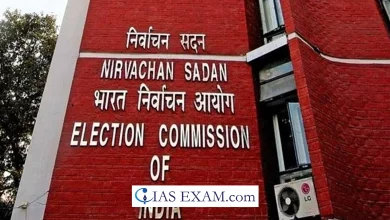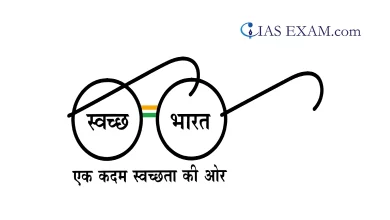Aligning AYUSH with Modern Medicine
GS Paper 3 - Achievements of India in Science & Tech

Context
Presently, the practitioners of modern medicine are being urged to be more open to working with traditional or alternative systems of medicine (AYUSH) and to move towards an integration for the greater good of the patients. While it seems a very appealing aspect, it would still be good to examine the practical issues and challenges involved.
The production of AYUSH medicines and its supplements have seen exponential growth in the past few years in India. Revenue has surged from USD 3 Billion in 2014 to USD 18 Billion in 2020 and its anticipated growth to USD 24 billion in 2023 showcased its financial impact.
Historical Context & shift towards Integration
- India has a rich legacy of traditional healthcare systems deeply rooted in its culture and heritage. Ayurveda, Yoga, and other traditional systems have been practiced for centuries, offering alternative remedies and preventive healthcare measures.
- However, the dominance of modern medicine and the allopathic approach relegated traditional systems to the margins for a significant period.
- The resurgence of interest in traditional medicine and the growing recognition of its efficacy prompted the Indian government to promote the integration of AYUSH with modern medicine.
- Initiatives like the National Ayush Mission and the establishment of AYUSH departments in medical institutions signify a concerted effort towards bridging the gap between the two systems.
Challenges in Integration
The integration of AYUSH with modern medicine presents a multitude of intricate challenges that must be carefully navigated to realize the full potential of a unified healthcare system in India:
- One of the foremost hurdles lies in the stark disparity between the two systems in terms of standardization and evidence-based practices. While modern medicine is firmly rooted in rigorous scientific research and clinical trials, traditional AYUSH practices often lack standardized protocols and empirical validation.
- This dearth of scientific evidence not only undermines the credibility of AYUSH therapies within the modern medical community but also poses significant regulatory challenges. Without robust documentation and validation, it becomes arduous to establish clear guidelines for the safe and effective integration of AYUSH practices into mainstream healthcare.
- Moreover, the philosophical differences between AYUSH and modern medicine present substantial obstacles to seamless integration. While modern medicine primarily focuses on disease diagnosis and treatment, AYUSH adopts a holistic approach that considers the interconnectedness of the body, mind, and spirit. This fundamental contrast in ideology and diagnostic methodologies complicates efforts to harmonize the two systems and may result in resistance from proponents of either approach.
- Lack of interdisciplinary training and collaboration exacerbates the challenges of integration. Healthcare professionals trained in modern medicine may possess limited understanding or appreciation of AYUSH therapies, leading to skepticism or reluctance to incorporate them into clinical practice. Similarly, AYUSH practitioners may encounter barriers in navigating the complexities of modern medical practices and protocols.
- Additionally, issues related to quality control, safety standards, and regulatory oversight pose significant challenges in the integration process. Ensuring the safety, efficacy, and quality of AYUSH products and therapies requires robust regulatory frameworks and monitoring mechanisms. Without stringent enforcement measures, there is a risk of substandard practices, adulteration, and compromised patient safety.
Prospects and Opportunities
- Despite challenges, the integration of AYUSH with modern medicine offers promising prospects for India’s healthcare sector. AYUSH therapies are often regarded as more cost-effective and accessible, especially in rural areas where modern medical infrastructure is limited. Integrating AYUSH into the mainstream healthcare system can expand healthcare access and offer patients a broader spectrum of treatment options.
- Moreover, AYUSH principles emphasize preventive healthcare and lifestyle modifications, aligning with the growing global trend towards holistic wellness. By incorporating AYUSH practices into primary healthcare initiatives and promoting wellness programs, India can address the rising burden of non-communicable diseases and promote overall well-being.
- Additionally, the integration of AYUSH with modern medicine fosters interdisciplinary research and innovation, driving advancements in healthcare technology, drug discovery, and therapeutic interventions.
- Collaborative efforts between AYUSH practitioners, modern medical professionals, and researchers can yield novel insights into disease mechanisms, treatment modalities, and personalized healthcare approaches, ultimately improving patient care and clinical outcomes.
- AYUSH therapies have gained international recognition and acceptance, positioning India as a global leader in traditional medicine and holistic wellness. The growing global demand for alternative healthcare solutions and natural remedies presents lucrative opportunities for India to leverage its rich heritage of traditional healing practices and expand its footprint in the global healthcare market.
- By promoting AYUSH tourism, facilitating cross-border collaborations, and adhering to stringent quality standards, India can capitalize on the burgeoning market for natural and holistic healthcare products and services.
Government Schemes related to AYUSH
|
Implications and Way Forward
The integration of AYUSH with modern medicine represents a paradigm shift in India’s healthcare landscape. While it holds immense potential to revolutionize healthcare delivery and enhance patient outcomes, successful integration necessitates collaborative efforts from policymakers, healthcare practitioners, researchers, and the community at large.
Aligning AYUSH with modern medicine in India presents both challenges and opportunities. By fostering synergy between traditional and modern systems, India can achieve a comprehensive healthcare framework that prioritizes patient-centric care, promotes wellness, and addresses the diverse healthcare needs of its populace.
SOURCE: The Indian Express





.png)



